Overview
Kantipur College of Medical Science (KCMS) in Sitapaila, Kathmandu, Nepal (estd. 2003) is known for health-science education aligned with national standards. The college runs Tribhuvan University (TU) programs in BSc Microbiology and MSc Microbiology, and CTEVT programs such as Diploma in Pharmacy (DPH), Certificate in Medical Laboratory Technology (CMLT), and PCL in General Medicine (Health Assistant, HA).
KCMS focuses on laboratory, pharmacy, and primary care skills that match workforce needs across hospitals, pharmaceutical companies, diagnostic centers, and community health services. Graduates work in roles that require careful practice, record-keeping, and adherence to national regulatory frameworks.
KCMS has grown as a health-science college with a steady intake across undergraduate, postgraduate, and diploma streams. The college follows syllabi and assessments prescribed by TU and CTEVT, ensuring that instruction, examinations, and internships meet external benchmarks used in Nepal’s health education system.
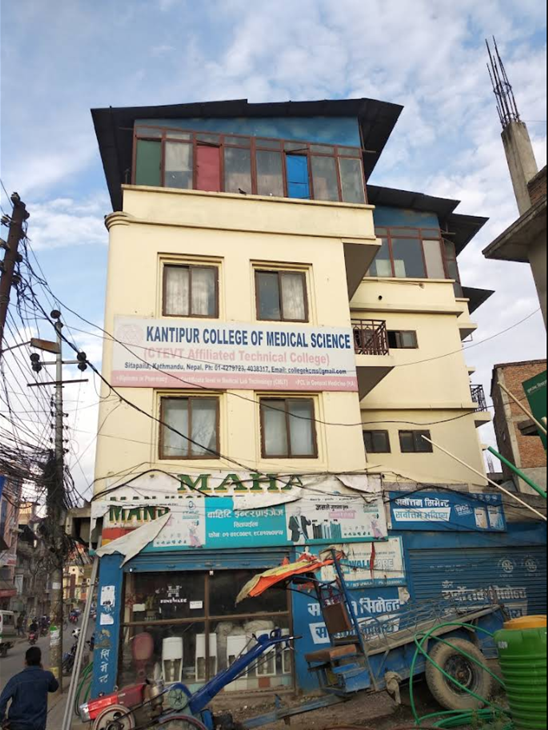
Quick Highlights
-
Established: 2003
-
Location: Sitapaila, Kathmandu, Nepal
-
Affiliations: Tribhuvan University (TU); Council for Technical Education and Vocational Training (CTEVT)
-
Programs: MSc Microbiology; BSc Microbiology; Diploma in Pharmacy (DPH); CMLT; PCL in General Medicine (HA)
-
Instructional Focus: Microbiology, pharmacy practice, medical laboratory diagnostics, primary care
-
Learning Mode: Classroom, laboratory practicals, field exposure, internships
-
Library & Labs: Subject-specific labs and a reference library with journals and course texts
-
Assessment: Internal evaluations plus board/affiliating-body examinations
-
Graduate Pathways: Hospitals, community health centers, pharmaceutical industries, research labs, public health projects
Academic Programs Offered
Tribhuvan University (TU)
BSc Microbiology
What you study: Microbes and their role in health, food, water, industry, and the environment. You’ll practice aseptic technique, culture and staining methods, biochemical tests, antibiotic susceptibility testing, and the reporting formats used in diagnostic labs and research units.
Good fit for: Students who enjoy lab work, careful observation, and evidence-based reporting—especially those eyeing diagnostic labs, food and pharmaceutical quality checks, infection control, or assistant roles in research projects.
Where it leads: Entry-level lab technologist posts, QA/QC positions in industry, progression to MSc Microbiology, or research internships.
MSc Microbiology
What you study: Advanced medical, industrial, environmental, or food microbiology. The course deepens your skills in planning studies, analyzing data, reviewing literature, writing reports, and coordinating lab teams.
Good fit for: BSc Microbiology graduates aiming for senior diagnostic responsibilities, research and development groups, or academic tracks.
Where it leads: Research associate or project roles, supervisory positions in laboratories, teaching (as per university rules), and preparation for PhD-level study.
CTEVT
Diploma in Pharmacy (DPH)
What you study: Pharmacy calculations, pharmacology, dispensing, community pharmacy services, and drug information—taught in line with Department of Drug Administration (DDA) requirements.
Good fit for: Learners who want hands-on roles in hospital or community pharmacies and the pharmaceutical supply chain.
Where it leads: Pharmacy technician roles, management of community pharmacies under national rules, and the option to pursue higher study in pharmacy.
Certificate in Medical Laboratory Technology (CMLT)
What you study: Routine hematology, clinical biochemistry, basic microbiology, sample collection and processing, with strong attention to safety and quality steps.
Good fit for: Students who want to work in diagnostic labs at hospitals or collection centers.
Where it leads: Medical lab technician posts and a pathway to advanced laboratory education.
PCL in General Medicine (Health Assistant, HA)
What you study: Primary care skills—history taking, physical examination, common procedures, safe and rational use of medicines, and timely referrals across community and institutional settings.
Good fit for: Learners interested in frontline healthcare, community outreach, and public health activities.
Where it leads: Health Assistant positions at health posts, clinics, hospitals, and community programs.
Admission Process
Eligibility
-
TU programs: Follow TU rules (e.g., science background for BSc Microbiology; relevant bachelor’s degree for MSc).
-
CTEVT programs: Meet the minimum academic criteria set by CTEVT for DPH, CMLT, and HA.
How to apply
Submit the application form with transcripts, character certificates, migration/provisional documents, and a citizenship or passport copy. If you are waiting for Grade 12 results, you may apply on a provisional basis when allowed by the board.
Selection
Selection may include a written test and an interview. Final decisions follow the criteria of the affiliating body and available seats.
Intake and deadlines
The college publishes application windows and dates in line with TU and CTEVT academic calendars.
Teaching Faculty and Learning Methodology
Faculty members hold advanced qualifications and bring relevant field experience from hospitals, research units, and industry labs. Instruction combines lectures, small-group sessions, case exercises, and extensive practicals. Internal evaluation uses periodic class tests, presentations, and practical checklists to strengthen lab accuracy, documentation, and professional conduct.
Infrastructure and Learning Facilities
KCMS maintains laboratories for microbiology, biochemistry, hematology, and pharmacy practice. The library includes course texts, reference titles, and discipline-specific journals. Classrooms are supported by audio-visual tools for demonstrations and seminars. Computer access is available for literature searches, report writing, and data analysis. Safety protocols for lab work—PPE, waste management, and incident reporting—are part of routine training.
Student Life and Campus Experience
Students engage in seminars, journal discussions, and guest sessions with professionals from hospitals, pharmaceutical firms, and public health projects. Academic advising helps with course planning and exam readiness. Counseling support and mentorship groups guide students through assignments, practical records, and internship selection.
Extracurricular Activities (ECA)
KCMS encourages balanced growth. Students participate in health camps, awareness drives, and voluntary service during public health events.
Sports such as basketball, table tennis, badminton, and cricket are available, along with periodic cultural activities coordinated by student clubs.
Scholarships and Financial Support
Limited merit-based and need-sensitive support may be available as per policy and seat quotas. Applicants should check the latest notices for criteria, required documents, and deadlines. External scholarships or government schemes, when announced, are honored according to the issuing body’s rules.
Achievements and Institutional Milestones
Over two decades, KCMS alumni have joined hospitals, diagnostic networks, pharmaceutical distribution, and laboratory services across Nepal.
Many graduates have progressed to higher study and research roles. The college continually updates lab practices and internal checks to stay aligned with TU/CTEVT updates and national regulatory expectations.
Why Choose This Institution?
-
Programs linked to clearly defined roles in hospitals, pharmacies, and labs
-
Strong practical workload across all streams, with field exposure and internships
-
Location in Kathmandu with access to clinical and industry sites
-
Library and labs oriented toward routine diagnostic and pharmacy tasks
-
Pathways to higher study and professional licensure where applicable
Conclusion
KCMS provides structured health-science education grounded in national curricula and assessment frameworks. With steady lab exposure, clear academic requirements, and links to service settings, the college supports learners who plan to build careers in microbiology, diagnostics, pharmacy practice, and primary care.
FAQ
1) What affiliations does KCMS hold?
Tribhuvan University for BSc/MSc Microbiology and CTEVT for DPH, CMLT, and HA.
2) What are the minimum entry requirements?
Eligibility follows TU/CTEVT rules for each stream. Applicants should review the latest notice for grade thresholds and subject prerequisites.
3) Does KCMS provide internships or exposure visits?
Yes. Students gain exposure in hospital labs, community pharmacies, health posts, and industry sites according to program requirements.
4) Are there scholarships?
Limited scholarships may be offered. Availability, criteria, and deadlines are announced in official notices.
5) What are the typical career options after graduation?
Hospital or private diagnostic labs (CMLT, Microbiology), community/hospital pharmacies (DPH), primary care services (HA), and research or QA/QC roles in relevant industries.
6) How are students assessed?
Through internal tests, practical evaluations, and final examinations under TU/CTEVT.
7) Can Grade 12 students apply before final results?
Provisional applications may be accepted where permitted by the board. Check the current intake notice.



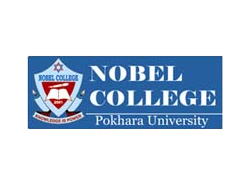
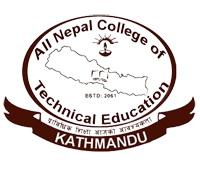
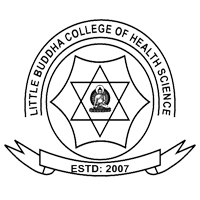
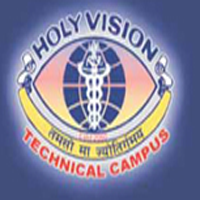
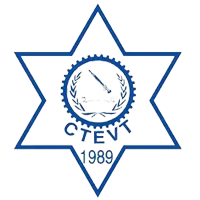











You need to login to comment.